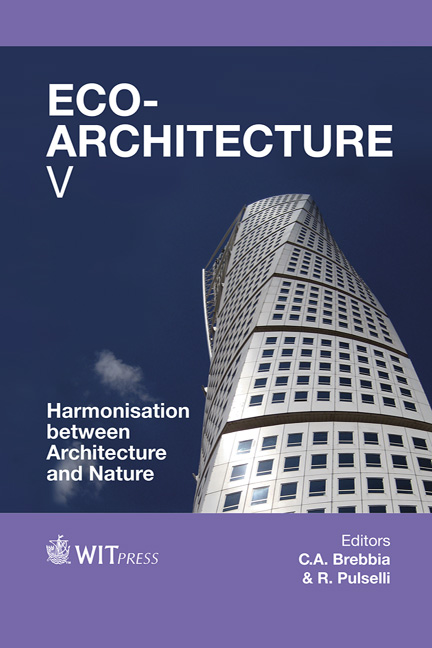Analysis And Perception: Architectural Pedagogy For Environmental Sustainability
Price
Free (open access)
Transaction
Volume
142
Pages
12
Page Range
577 - 588
Published
2014
Paper DOI
10.2495/ARC140491
Copyright
WIT Press
Author(s)
Y. Luckan
Abstract
Theories and concepts of environmental sustainability in architectural education weigh heavily toward the analysis of scientific data and conversely largely ignores the value of perception as an analytical tool. Architects, urban designers and students have been largely influenced by these indicators and much attention and time is spent on energy calculations and performance analysis. The ability to understand architecture and place as responsive to people, place and time has been undermined, hence an antithesis to sustainable architecture emerges. The analysis of place is often based on abstract perceptual reading of maps and drawings which, whilst necessary, requires the complementary understanding of place through experiential perception. The perception of place, however, is largely based on the explicitly perceivable elements defining space, hence many opportunities for innovative use of space and transformation of space into place are implicitly disregarded. The opportunities that exist particularly in Atopia (Menin Constructing Place: Mind & Matter 2003) and Lost Spaces (Trancik Finding Lost Space 1986) are often missed. This paper posits that in order to develop environmentally sustainable architecture, the concept of adaptive reuse of existing space, in addition to materials and technology, is fundamentally necessary. For this to happen, however, architects need to develop qualities of perception that engage with the multiple, intangible, layers of space while at the same time being able to see opportunities for adaptive reuse of anti-space, “atopia” or lost space. The development of such perceptual abilities, however, requires a re-look at architectural pedagogy and methods of spatial analysis.
Keywords
environmental sustainability, eco-efficiency, urbanism, spatial waste, perceptual analysis, adaptive reuse, resilience, architectural pedagogy, interdisciplinarity





